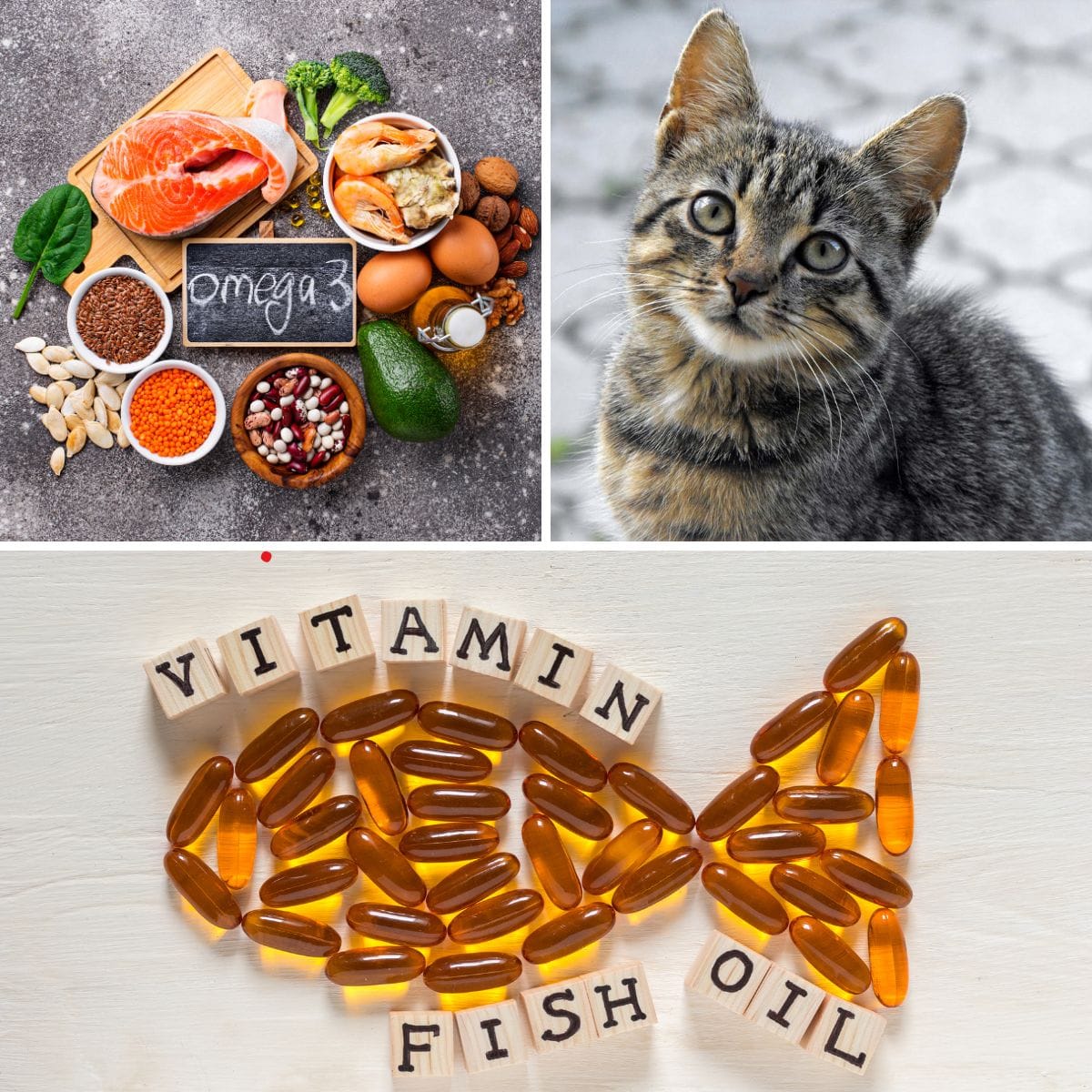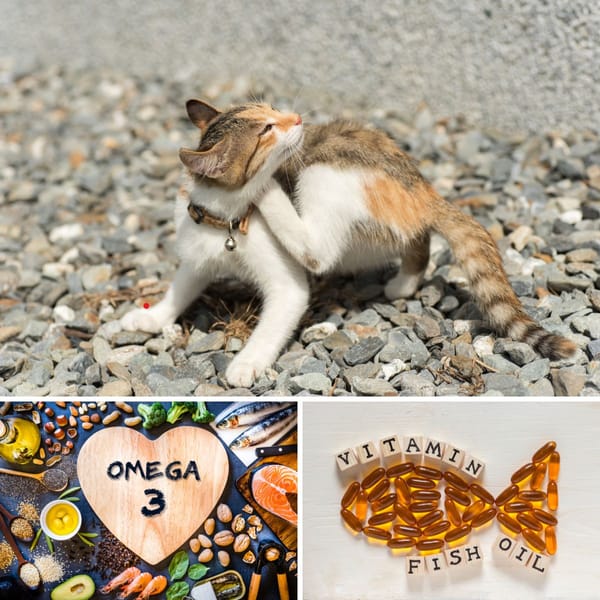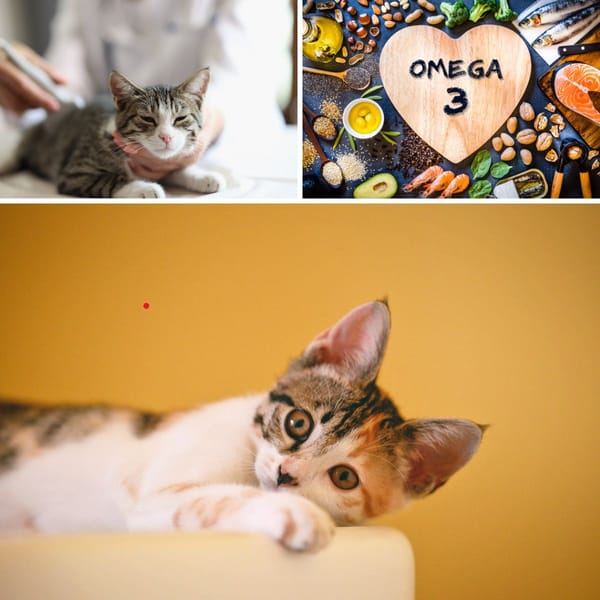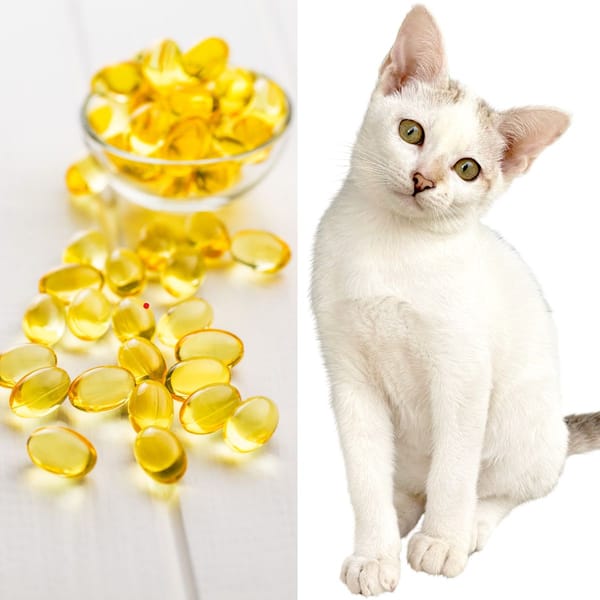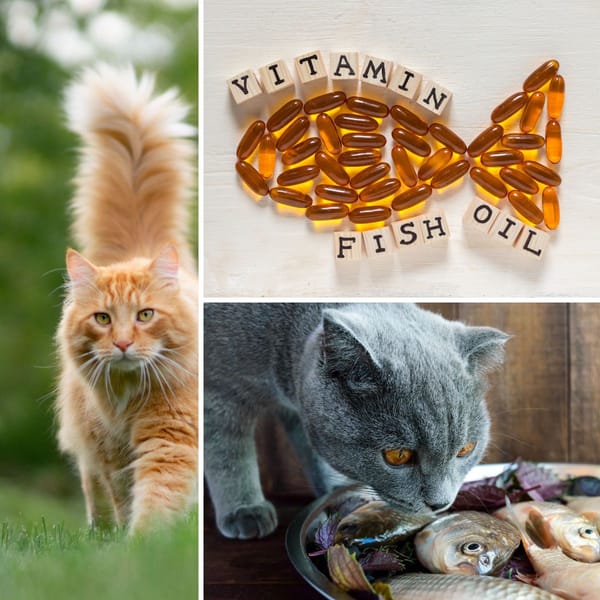Key Takeaways:
- Recognizing the symptoms of omega-3 deficiency in cats is crucial for maintaining their overall health.
- Essential fatty acids, including omega-3s, play a significant role in various bodily functions of cats.
- Providing a balanced diet with adequate omega-3s can prevent deficiency and promote optimal health in felines.
Omega-3 fatty acids are a group of polyunsaturated fatty acids that are essential for the health of your feline friends. They are crucial components of cell membranes and are involved in many bodily processes, including inflammation, blood clotting, and brain function. However, cats cannot produce these essential fatty acids on their own and must obtain them through their diet. But what happens when they don't get enough? Let's dive into the symptoms of omega-3 deficiency in cats and how it can affect their well-being.
The Role of Omega-3s in a Cat's Diet
Omega-3 fatty acids, particularly eicosapentaenoic acid (EPA) and docosahexaenoic acid (DHA) are vital for maintaining a cat's health. These fatty acids are found in marine sources like fish oil supplements and are integral to the development of the brain and eyes. They also have anti-inflammatory effects that can benefit cats with joint pain or other inflammatory conditions.
Spotting the Signs: Skin and Coat Health
One of the most noticeable symptoms of omega-3 deficiency in cats is a lackluster coat. A shiny coat is often a sign of good health, and a deficiency in essential fatty acids can lead to dry skin and a dull, brittle coat. In more severe cases, cats may experience hair loss or develop skin lesions that are slow to heal, indicating a potential deficiency in these vital nutrients.
Joint Health and Mobility Issues
Joint health is another area where omega-3 fatty acids play a crucial role. Cats suffering from a deficiency might exhibit joint pain or stiffness, which can lead to decreased mobility. This is particularly concerning for older cats, as they are more prone to develop joint-related health conditions that can be exacerbated by a lack of omega-3s.
Eye Health and Visual Acuity
Omega-3 fatty acids, specifically DHA, are important for maintaining eye health. Cats with a deficiency might show signs of visual impairment or eye problems. Ensuring an adequate intake of omega-3s is essential for preventing such issues and supporting overall eye health.
The Impact on Feline Growth and Development
In kittens and young cats, a deficiency in omega-3 fatty acids can hinder growth and development. These essential nutrients are the building blocks for many of the body's systems, and without them, cats may not reach their full potential in terms of size, strength, and cognitive abilities.
Behavioral Changes and Brain Function
Omega-3 fatty acids have a significant impact on brain function. Cats lacking these nutrients may exhibit behavioral changes or cognitive dysfunction. This can manifest as disorientation, mood swings, or a noticeable decline in mental sharpness, especially in adult cats and seniors.
Digestive Health and Fat Intolerance
Cats with a deficiency in omega-3 fatty acids might also struggle with digestive issues. Since these fatty acids aid in the absorption of fat-soluble vitamins and promote a healthy digestive tract, a lack of them can lead to fat intolerance and other gastrointestinal problems.
Omega-3s and Feline Immune System
Omega-3 fatty acids are not just building blocks for a cat's skin and coat; they're also crucial for a robust immune system. Cats with a deficiency in omega-3s may have a weakened immune response, making them more susceptible to infections and slower to heal from wounds. This is because omega-3s, particularly eicosapentaenoic acid (EPA) and docosahexaenoic acid (DHA), have anti-inflammatory effects that support the body's defense mechanisms. When a cat's diet lacks these essential nutrients, their system may not respond adequately to threats, leading to more frequent and prolonged illnesses.
Veterinary medicine often emphasizes the importance of a balanced diet to maintain a cat's health, and this includes ensuring they receive sufficient omega-3 fatty acids. If a cat is showing clinical signs of frequent infections or poor wound healing, it might be a red flag for fatty acid deficiency. Fatty acid supplements can be introduced to their diet to help bolster their immune system. However, it's essential to consult with a vet to rule out other diseases and to get recommendations on the appropriate supplements and dosages based on the cat's body weight and health status. Sure, let's expand the article with two new sections that will provide additional insights into the topic.
Omega-3s and Feline Cardiovascular Health
When it comes to a cat's health, the heart is as crucial as any other organism, and omega-3 fatty acids play a significant role in maintaining a healthy feline cardiovascular system. A deficiency in omega-3s may not be immediately obvious, but over time, it can lead to heart problems. Cats with insufficient omega-3 intake might exhibit less stamina and an increased heart rate, which could be a sign of underlying cardiovascular issues. It's essential to monitor your cat's diet to ensure they're getting enough polyunsaturated fatty acids, including EPA and DHA, to support their heart health.
Moreover, the anti-inflammatory effects of omega-3s are beneficial in preventing and managing heart diseases in cats. Inflammation is a common pathway for many heart conditions, and by incorporating sufficient omega-3s into your cat's diet, you could potentially reduce the risk of such ailments. Foods rich in omega-3s, like certain fish oils, can be a valuable addition to your cat's diet. However, it's important to consult with a veterinarian before making any significant changes to ensure the supplements are appropriate for your cat's specific health needs.
The Interplay Between Omega-3s and Feline Reproductive Health
The reproductive system of cats, much like their overall health, can be influenced by the nutrients they consume. Omega-3 fatty acids, particularly DHA, are crucial for the proper development of the nervous system in kittens. A mother cat's diet lacking in omega-3s, specifically DHA and EPA, can lead to developmental delays and health issues in her offspring. It's vital for pregnant or nursing cats to receive a diet rich in these nutrients to support the growth and health of their kittens.
Furthermore, omega-3 fatty acids have been shown to have positive effects on the reproductive health of adult cats. These polyunsaturated fatty acids, including alpha-linolenic acid and linoleic acid, can help maintain the cell membrane integrity of reproductive cells, and their anti-inflammatory properties may support the overall reproductive system. While omega-3s are not a cure-all, ensuring that your cat's diet includes these essential nutrients can contribute to a healthy reproductive cycle and potentially improve fertility outcomes.
These sections aim to provide a deeper understanding of how omega-3 fatty acids influence different aspects of a cat's health beyond the commonly discussed topics. By incorporating these nutrients into a cat's diet, pet owners can take proactive steps to support their feline friends' well-being.
Cognitive Function and Omega-3s in Cats
The brain is one of the most fatty acid-rich organs in a cat's body, and omega-3s play a significant role in maintaining cognitive function. A deficiency in these fatty acids can lead to noticeable changes in a cat's behavior, such as confusion, disorientation, or a decline in learning ability. Alpha-linolenic acid (ALA), found in plant oils like flaxseed and linseed, is converted to the more active forms of omega-3s, EPA and DHA, which are critical for brain health. These active forms are responsible for maintaining cell membrane fluidity and facilitating communication between brain cells.
While cats can convert some ALA to EPA and DHA, they do it inefficiently, which is why animal sources of omega-3s, like fish oil, are preferred in a cat's diet. The many benefits of omega-3s for cognitive function make them a vital component of feline nutrition, especially for aging cats that may be at risk for cognitive decline. Incorporating additional fatty acids into a cat's diet through supplements or omega-3-rich foods can support their mental acuity and overall well-being. As always, it's advisable to seek guidance from a veterinarian to tailor the supplementation to the cat's specific needs and to monitor for any improvements or side effects.
The Importance of Arachidonic Acid
Arachidonic acid, another essential fatty acid, must be present in a cat's diet. While not an omega-3, it works in conjunction with omega-3s to maintain optimal health. A deficiency in arachidonic acid can lead to similar symptoms as omega-3 deficiency, emphasizing the need for a balanced intake of all essential fatty acids.
The Role of Commercial Diets
Many commercial diets for cats are formulated to provide an adequate intake of essential fatty acids. However, pet parents should be vigilant about the quality and composition of their cat's food to ensure it meets their nutritional needs and prevents the risk of omega-3 deficiency.
Supplementing with Fish Oil Capsules
For cats not receiving enough omega-3s from their diet, fish oil capsules can be an effective supplement. These capsules are rich in EPA and DHA and can help restore the balance of fatty acids in a cat's system, promoting a shiny coat, healthy skin, and overall well-being.
The Debate on Plant Oils
While plant oils like flaxseed oil, soybean oil, and canola oil contain alpha-linolenic acid (ALA), a precursor to EPA and DHA, the conversion rate in cats is low. Therefore, relying solely on plant oils may not provide sufficient levels of the necessary omega-3s for optimal health.
Understanding the Chemical Structure
Omega-3 fatty acids are characterized by the presence of double bonds in their chemical structure, with the first double bond located three atoms away from the omega end. This unique structure contributes to their role in the body and distinguishes them from other types of fatty acids.
The Wide Array of Health Benefits
The potential benefits of omega-3 fatty acids extend beyond the symptoms of deficiency. They can contribute to better blood pressure regulation, wound healing, and may even have a role in preventing or managing certain health conditions and diseases in cats.
The Need for More Research
While the benefits of omega-3 fatty acids are widely recognized, more research is needed to fully understand their role in companion animal medicine. This includes studying the long-term effects of supplementation and the potential adverse effects of excessive intake.
Summary
Omega-3 fatty acids are essential for maintaining a cat's health, and a deficiency can lead to a range of symptoms affecting their skin, coat, joints, eyes, and overall well-being. Recognizing these signs is crucial for pet parents to ensure their feline companions receive a balanced diet that includes adequate levels of these important nutrients. Supplements like fish oil capsules can help address deficiencies, but it's important to consult with a veterinarian to determine the best course of action for your cat's specific needs.
FAQ Section
Q: How can I tell if my cat is deficient in omega-3 fatty acids? A: Look for symptoms such as a dull or brittle coat, dry skin, hair loss, joint pain or stiffness, visual impairment, behavioral changes, or digestive issues. If you notice any of these signs, consult your veterinarian for advice.
Q: Can I give my cat human fish oil supplements? A: While human fish oil supplements may contain the necessary omega-3s, it's important to use products specifically designed for cats to ensure the correct dosage and avoid any potential contaminants. Always consult with your veterinarian before starting any new supplement.
Q: Are there any risks associated with omega-3 supplements for cats? A: When used appropriately, omega-3 supplements are generally safe for cats. However, excessive intake can lead to adverse effects such as blood clotting issues or inflammation. It's essential to follow your veterinarian's recommendations regarding dosage and frequency.

